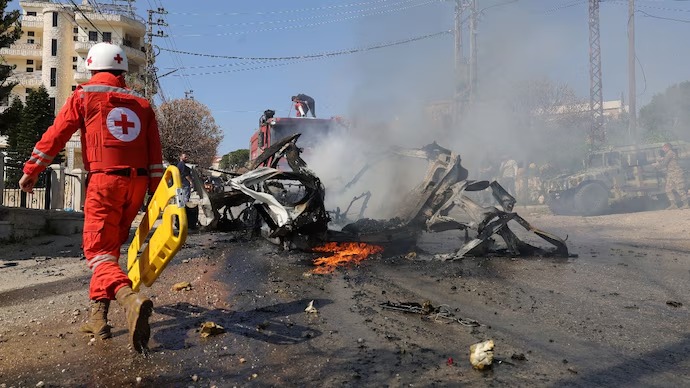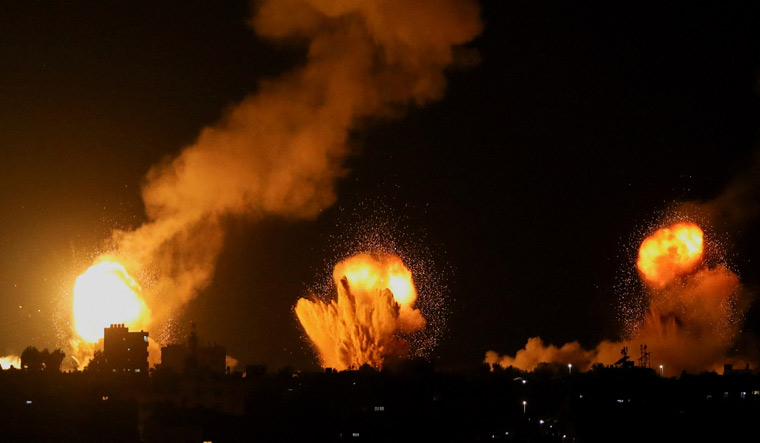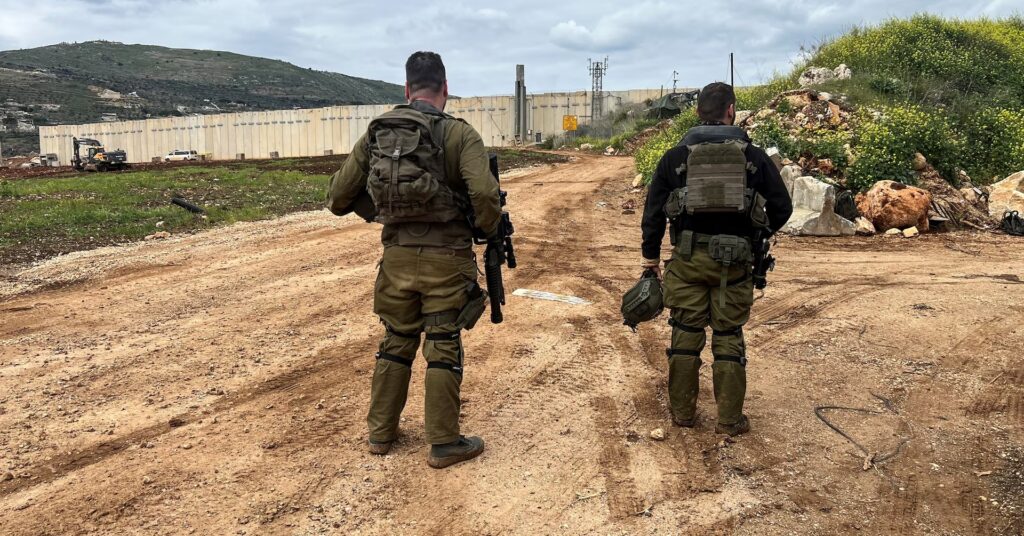Tensions in the Middle East have flared once again as Israel launched airstrikes on Lebanon following the first rocket attack from Lebanese territory since the ceasefire. This development has sparked global concern, raising fears of a potential escalation between the two neighboring countries. In this article, we will explore the reasons behind the renewed conflict, the response from both sides, international reactions, and the possible implications for regional stability.
The Rocket Attack That Broke the Ceasefire
After months of relative calm, the ceasefire between Israel and Lebanon was shattered when rockets were fired into Israeli territory from Lebanon. This marked the first such attack since the most recent truce was agreed upon. Israeli defense forces reported that multiple rockets were launched, triggering air raid sirens in northern Israel and prompting residents to seek shelter.

The Lebanese group responsible for the attack remains unidentified, but speculation points to Hezbollah or other militant factions operating in the region. The timing of the assault has raised questions about whether this was a calculated move or an isolated incident.
Israel’s Swift Response: Airstrikes on Lebanon
In retaliation, Israel carried out targeted airstrikes on what it described as key militant positions in southern Lebanon. According to Israeli officials, the strikes were aimed at military infrastructure and launch sites used for the rocket attacks. The Israeli Defense Forces (IDF) emphasized that they would not tolerate any breach of the ceasefire and vowed to take further action if necessary.
The Lebanese government condemned the strikes, calling them a violation of sovereignty. Meanwhile, Hezbollah, a powerful armed group based in Lebanon, warned that continued aggression could lead to a broader conflict.
International Reactions and Calls for De-escalation
The international community has responded with growing concern over the renewed violence. The United Nations, the United States, and the European Union have all urged both sides to exercise restraint and return to diplomatic negotiations.

The Impact on Civilians in Israel and Lebanon
As with any military conflict, civilians on both sides bear the brunt of the violence. In Israel, residents near the northern border were forced into bomb shelters, causing widespread fear and disruption. In Lebanon, the airstrikes caused damage to infrastructure, leading to displacement and humanitarian concerns.
Human rights organizations have called for both sides to prioritize civilian safety and adhere to international laws governing armed conflict. Meanwhile, humanitarian groups are mobilizing to provide aid to affected communities.
The Role of Hezbollah and Other Militant Groups
Hezbollah, which has significant influence in Lebanon, has historically been at odds with Israel. The group has a history of cross-border attacks and has previously engaged in full-scale conflicts with Israel. While Hezbollah has yet to officially claim responsibility for the latest rocket attack, its involvement cannot be ruled out.
Other smaller militant factions operating within Lebanon may also be responsible. Some analysts suggest that the attack could have been a provocation by rogue elements seeking to disrupt the fragile peace.

The Broader Geopolitical Implications
The escalation between Israel and Lebanon could have far-reaching consequences for the Middle East. Given the existing tensions in the region, a prolonged conflict could draw in other players, including Iran and Syria, both of which have ties to Hezbollah.
Moreover, the ongoing Israel-Gaza conflict further complicates the situation. If hostilities between Israel and Lebanon intensify, it could lead to a multi-front battle, straining military resources and escalating the humanitarian crisis.
Frequently Asked Questions
Why did Israel strike Lebanon?
Israel launched airstrikes in response to rocket attacks from Lebanon, citing self-defense and the need to deter further aggression.
Who fired the rockets from Lebanon?
The responsible group remains unidentified, but Hezbollah and other militant factions are suspected of involvement.
What is Hezbollah’s role in the conflict?
Hezbollah, a powerful armed group in Lebanon, has historically been involved in conflicts with Israel and may have links to the recent attacks.
How has the international community responded?
The UN, US, and EU have urged both sides to exercise restraint and engage in diplomatic dialogue to prevent further escalation.
How are civilians affected by the conflict?
Civilians in both Israel and Lebanon face displacement, fear, and damage to infrastructure due to the ongoing hostilities.
Could this conflict escalate into a larger war?
There is a risk of escalation if tensions persist, especially with involvement from regional powers like Iran and Syria.
What steps can be taken to restore peace?
Diplomatic negotiations, stronger border security, and economic support for Lebanon could help de-escalate the situation.
What are the historical tensions between Israel and Lebanon?
Israel and Lebanon have a history of conflicts, with major wars and periodic skirmishes primarily involving Hezbollah and Israeli forces.
Conclusion
The latest conflict between Israel and Lebanon underscores the fragile nature of peace in the region. While Israel’s response to the rocket attack was swift, the risk of further escalation remains high. The international community must step in to mediate and prevent another prolonged war. Sustainable peace can only be achieved through diplomacy, respect for sovereignty, and addressing the political and economic issues fueling the conflict. Both nations must choose peace over destruction.
